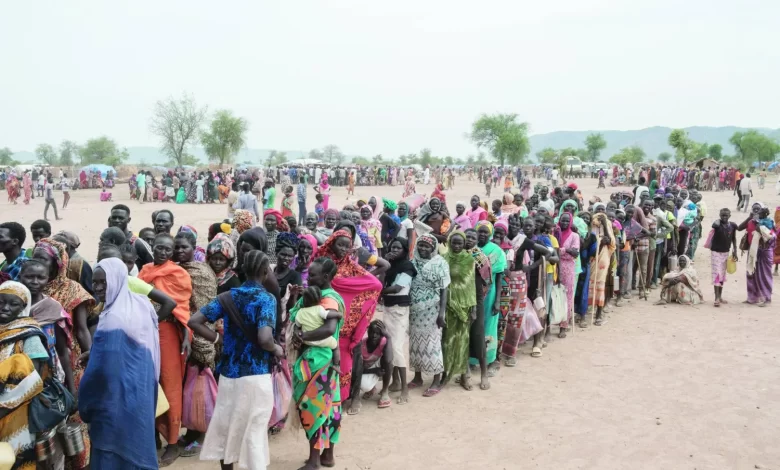Escalation of Fighting Between the Sudanese Army and RSF in West Kordofan

Fierce battles are ongoing on the outskirts of Al-Nuhud city in West Kordofan State between the Sudanese Army and the Rapid Support Forces (RSF), which are fiercely resisting to maintain control of the city they seized in early May. Meanwhile, the army and allied factions have mobilized large forces to advance on the city.
Field sources told Asharq Al-Awsat that intense fighting erupted early Monday across several fronts outside Al-Nuhud. The army announced that, alongside the Joint Forces of the Armed Struggle Movements, it had regained full control of Al-Khuwei city, repelled RSF fighters, and captured several combat vehicles. Al-Khuwei is located about 50 kilometers north of Al-Nuhud, the largest locality in West Kordofan.
For its part, the RSF accused the Joint Forces allied with the army of committing what it described as “brutal crimes” during Sunday’s attack on Al-Khuwei. In a statement on Telegram, the RSF claimed the Joint Forces “deliberately slaughtered dozens of civilians after torturing them in horrific ways, including beheadings and mutilating corpses.”
The statement affirmed the existence of documented testimonies and video evidence showing premeditation of these crimes aimed at subjugating and terrorizing local communities along ethnic and political lines. It called on the international community and human rights organizations to document and condemn these violations, and urged media outlets to expose them to public opinion.
Red Sea Conflict Concerns
In a related context, the leader of the Umma Party – Reform and Renewal, Mubarak Al-Mahdi, said that airstrikes targeting Port Sudan in eastern Sudan caused massive destruction to military bases and fuel storage facilities in several cities.
In a statement, Al-Mahdi warned that these developments are turning the war in Sudan into part of a broader regional and international conflict over the Red Sea. He noted that this conflict extends to Arab-Israeli competition and global rivalry with Iran for influence in the Middle East and control over strategic maritime routes.
Al-Mahdi also pointed to growing regional and international concern over attempts to reinstate elements of the ousted President Omar Al-Bashir’s regime, by arming them and enabling them to reclaim political and military decision-making power in Sudan. He stressed that allowing an Iranian foothold on Sudan’s western Red Sea coast would threaten the security of coastal states and bolster Iran’s influence in the ongoing power struggle in this vital region.
He described these developments as a “final warning” to stop the war and cautioned against the establishment of foreign military bases on Sudanese shores. He added that implementing the Jeddah Agreement could have halted the conflict, but the power struggle prevented that. Al-Mahdi emphasized that the greatest threat to Sudan’s future lies in the spread of militias and the proliferation of weapons, particularly in the heart of the capital, Khartoum.
He called for Sudan’s foreign relations to be built on the foundation of protecting national security and mutual interests with regional and international partners—away from alliance politics—and stressed the importance of resolving disputes through diplomatic dialogue.
Potential Oil Export Halt
Meanwhile, Sudan’s army-aligned government has asked oil companies to prepare to shut down facilities exporting South Sudan’s oil, following attacks carried out by the RSF, according to a letter reviewed by Agence France-Presse (AFP).
The letter from Sudan’s Ministry of Energy and Petroleum to its South Sudanese counterpart stated that RSF drones targeted a main pumping station and a fuel depot on May 8 and 9 in areas controlled by the army, making the suspension of exports “highly likely.”
Since the 2011 secession, landlocked South Sudan has relied on Sudan to refine and export its oil through Port Sudan on the Red Sea.
South Sudan currently exports about 110,000 barrels of crude oil per day, according to local reports. In return, Khartoum receives transit fees, which are vital for its war-stricken economy. After a year-long suspension of the trade agreement due to the conflict, it was resumed in January 2025.
In recent weeks, the RSF has intensified its drone attacks on strategic military targets, including the last operational civilian airport in the country, a military base, a power station, and fuel depots.



